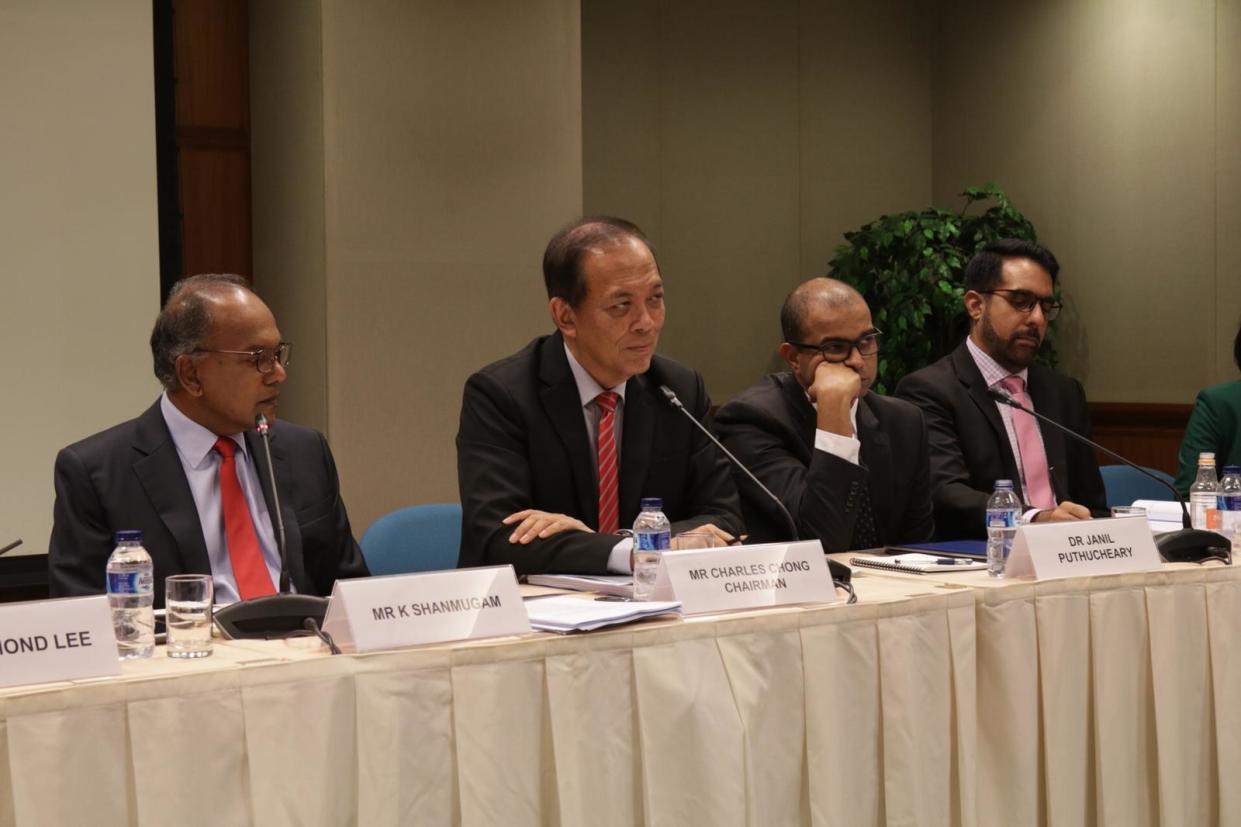Singapore government should pass laws against fake news: Select Committee

UPDATE: This story has been updated to include the government’s in-principle acceptance of the Select Committee’s recommendation for a multi-pronged approach to combat deliberate online falsehoods
Authorities in Singapore must be empowered to act against the perpetrators of deliberate online falsehoods, from disrupting the flow of ad revenue to imposing criminal sanctions, said a government-appointed committee on fake news.
Almost six months after a series of often combative public hearings on fake news, the Select Committee on Deliberate Online Falsehoods (DOFs) released its recommendations in a 317-page report on Thursday (20 September). The report was submitted to Parliament on Wednesday.
One of the recommendations of the 10-member panel’s wide-ranging – sometimes vaguely worded – list was that the government “should have the powers to swiftly disrupt the spread and influence of online falsehoods”.
The committee also advised that legislation be passed to enable authorities to act against the purveyors of DOFs and to regulate tech giants such as Facebook and Twitter to be more accountable about the spread of fake news on their platforms.
The panel also urged the government to consider putting in place a framework for public education that would, among others, provide a curriculum for schools on “the motivations and agendas of disinformation agents and their techniques and strategies”.
Speaking at a press conference at Parliament on Thursday, committee member Janil Puthucheary noted that it was “a very hefty report” that addressed “a live and serious threat for Singapore that threatens our national security”.
Dr Puthucheary, who is a Senior Minister of State for Transport and Communications and Information, said “strong measures” were necessary as falsehoods travel further and faster and are much harder to dislodge. “These sorts of problems can creep up on us unnoticed until it is too late,” he added.
The report was issued after considering 170 written representations and 65 oral representations, as well as a seven-week public consultation. It addressed, among others, how DOFs have been used to sow discord and affect election outcomes, Singapore’s vulnerabilities in this arena and how countries like Germany and France have dealt with the issue.
The report also included a 13-page addendum on the committee’s exchanges with Human Rights Watch and Reporters Without Borders, which ultimately declined to appear before the Select Commitee, as well as historian Thum Ping Tjin.
Thum, who had accused the ruling People’s Action Party of being the main purveyor of fake news in Singapore, was questioned for six hours by the committee in March.
‘Falsehoods can be defined’

All 10 members of the committee were present at the press conference, including Home Affairs and Law Minister K. Shanmugam. Pressed several times on when the government would respond to the committee’s recommendations, he would only say it was “not appropriate” for the committee to comment, and that the government would give its response in due course.
Asked if the panel had deliberated on what the definition of a falsehood should be, Shanmugam was emphatic: “The Select Committee has been quite clear: falsehoods are capable of definition, they have been defined in legislation, they have been defined in the courts and the Select Committee is quite comfortable that it can be defined. Shouldn’t be an issue.”
But the minister also stressed that the committee was clear on the difference between publicly circulated communications and that which was “private and personal” and “do not have a wide circulation”. He noted, “Whether it’s an open platform or a closed platform, if you’re a sending a message to somebody and it doesn’t have a wider circulation and it’s a purely private message about your family, then we should be careful about intervening in that.”
Given that tech companies have been vigorously opposed to regulation, was the government concerned that this might put them at odds with the tech giants? Puthucheary responded that the authorities would continue engaging these companies. “It is about what is the right approach to regulation…this engagement and negotiation has been going on, and we hope that it will lead to a positive outcome for them.”
Government’s response to Committee’s report
The government said it has accepted in-principle the committee’s recommendation for a multi-pronged approach to combat DOFs.
In a joint statement issued by the Ministry of Communications and Information and the Ministry of Law, the government said it “will study the Committee’s report closely and work with stakeholders to roll out the non-legislative and legislative measures recommended by the Committee over the next few months.”
Commending the committee for its “comprehensive and thoughtful report”, the government acknowledges the committee’s findings on the serious challenges and real risks posed by DOFs to the international community, including how they can harm national security and undermine a nation’s sovereignty. The committee has also found that DOFs could affect a country’s social cohesion, incite public unrest and violence, and that Singapore is not immune to this “grave threat”, the government said.
Related stories
Thum Ping Tjin lied to Select Committee, concludes fake news panel
Fake news could cause people to be disillusioned: Shanmugam
Facebook concerned about ‘rush’ by Singapore to introduce law to combat fake news
K Shanmugam presses Facebook on lack of transparency over Cambridge Analytica saga



